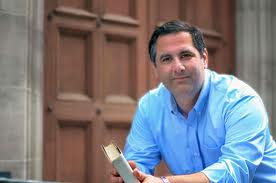Government Keeps Us Rich
by Salvatore Babones, Inequality.org
For decades neoclassical economists have asserted the inevitable logic of international convergence. Excess investment flows from rich countries to poor countries while excess labor flows from poor countries to rich countries. The result is a convergence in income among all countries. Given good institutions and free markets, poor countries will rise to become rich.
The logic of neoclassical convergence is impeccable, except for one fatal flaw. If incomes are expected to converge in a free market, why should it be that the poor countries converge to the rich countries’ level? Might not rich countries converge downward as well? Shouldn’t incomes for all countries converge to meet somewhere in the middle?
The standard against which convergence is usually measured is convergence to US income levels. Many academic papers on convergence even express other countries’ incomes in terms of a percentage of US levels. The assumption that all countries will converge with the United States doesn’t reflect any deep scientific principle. It merely reflects the fact that most neoclassical economists live and work in the United States.
For most Americans, America is the measure of all things. Like other Americans, American economists tend to see the United States as “normal” and all other countries as somehow aberrant. Take away government regulation, trade unions, minimum wage laws, currency controls, and other impediments to the free market and your country too can be like the United States — or so the reasoning goes.
The reasoning here is backwards. It assumes that without artificial economic distortions, other countries would be like the United States. Demoting the United States from its privileged perch as the “normal” country yields a more balanced point of view. In the absence of artificial economic distortions, the United States would be like other countries. It’s the United States — technological leader, cultural hegemon, global superpower — that is exceptional, not the rest of the world.
Do we need more free markets and more privatization? Economists say yes. History says no.
From this point of view, it’s not the rest of the world that has lagged for the past 150 years. It’s the United States that has out-performed. To keep its dominant position in the world-economy it must continue to out-perform, year after year, decade after decade. Today’s US GDP per capita of over $47,000 reflects over a century of good policies and good luck. There is no guarantee that the US will continue to play its hand so well. Quite the contrary: there are strong indications that it will not.
Do we need more free markets and more privatization? Economists say yes. History says no. We didn’t get rich through free markets and privatization. We got rich through government subsidies for transportation (first railroads, then highways, then airports). We got rich through government provision of education (first elementary schools, then high schools, then colleges and universities). We got rich through government support for good health (first immunization, then tax deductions for insurance, then Medicare and Medicaid).
In short, we became a rich country through massive government intervention to force the economy into providing public goods. Continued government intervention will keep us rich. Get rid of government, and our advantages disappear. Regression to the mean is the most powerful force in statistics. It is just as strong in economics. If economists can’t see that, it’s because they won’t take off their neoclassical goggles.
ABOUT THE AUTHOR
Salvatore Babones (@sbabones) is a senior lecturer in sociology and social policy at the University of Sydney and an associate fellow at the Institute for Policy Studies (IPS). He holds both a master’s degree in statistics and a Ph.D. in sociology from the Johns Hopkins University. Before moving to Australia in 2008, he worked in financial risk management and taught sociology and statistics at several universities in the United States.
Dr. Babones is an American citizen, born in New Jersey and educated in Florida, Alabama, and Maryland.
